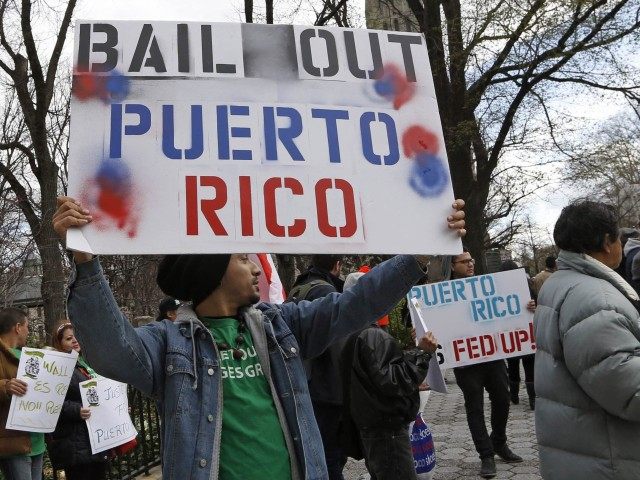The U.S. House passed the “Puerto Rico Oversight, Management and Economic Stability Act” (PROMESA) debt crisis legislation on Thursday by a 297-127 vote. The bill now heads to the U.S. Senate, where there appears to be a similar level of bipartisan support for approval.
This bill applies a form of Chapter Nine bankruptcy to the general obligation bonds of Puerto Rico that are guaranteed under the commonwealth’s constitution. Although Article VI, Section 8 of Puerto Rico’s constitution explicitly provides that “interest on the public debt and amortization thereof shall be paid first,” the “PROMESA” legislation overrides the Puerto Rican constitution and could be used to pay junior claims first.
Many fear that PROMESA is a bad precedent, because every US state government has similar constitutional provisions that guarantee their general obligation bonds. This constitutional guarantee has allowed states to borrow at extremely low interest rates, because the risk of default is extremely low.
PROMESA could have been written to respect the $18 billion of constitutionally guaranteed debt, and just focused instead on restructuring the $54 billion of Puerto Rican municipal debt that is not constitutionally guaranteed. But Congress, fearing a protracted battle, chose to include all of the territory’s municipal debt.
House sponsors said they addressed this concern by inserting a clause to “respect the relative lawful priorities in the constitution, other laws, or agreements.” But critics say that one of those “other laws” includes legislation signed in April by Puerto Rico Governor Alejandro García Padilla to default on a $422 million payment and a Puerto Rican regulatory board decision that could repudiate the debt as illegally issued.
If Congress is willing to undermine a U.S. territory’s constitutionally guaranteed bonds today, there is a higher risk that Congress would be willing to undermine constitutional debt guarantees for grossly insolvent states like Illinois and California in the future.
But the debt crisis negotiations took on new urgency due to the breakout of the mosquito-borne Zika virus. Federal health officials have warned that Puerto Rico could see a significant number of cases, straining the island’s public-health infrastructure.
The House also passed two accompanying amendments to the “PROMESA” bill. The first allows a Puerto Rico Debt Commission to continue its work to produce a professional audit of the territory’s debt. The second, passed unanimously, addresses child poverty in the U.S. territory.
Eric LeCompte, the executive director of the religious development coalition Jubilee USA, which championed the amendment, released the following statement: “Child poverty in Puerto Rico is its own crisis. As we reduce the debt we must reduce the 56 percent child poverty rate on the island.” He called it a “moral imperative.”
The child poverty amendment was supported by the US Conference of Catholic Bishops, Catholic Charities USA, the United Methodist Church, the Presbyterian Church (USA), the United Church of Christ, the Union of Reform Judaism and the Church of the Brethren.

COMMENTS
Please let us know if you're having issues with commenting.